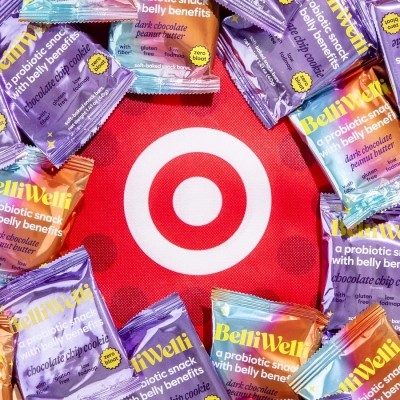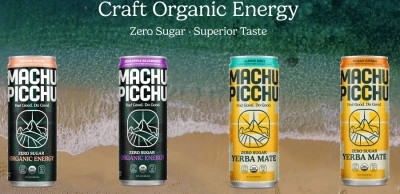From functional to ethical, identifying the health halo in botanicals

With an expected value of $608 million by the end of 2033, the global botanical beverage market is driven by consumer preferences towards functional, flavor and convenient products that fit an array of usage occasions, particularly surrounding attributes like energy and sleep.
“We’re seeing botanicals in more mainstream products. It used to be considered as something more niche, something a startup company would use. We have seen a lot of botanical or floral products that are tea beverages, for example, that are loaded with all different types of botanicals,” Getzel said.
“But the fact that you are now seeing it in products from large beverage manufacturers that are launching sleep products or natural energy and putting it into one of their juice beverages, it is an unexpected twist. Sometimes it is not even called out on the front label, like cardamom for example, but it is in the background. So, it is really offering complexity of flavor without alienating a lot of customers because some people may not know what cardamom is, or maybe they think they do not like it. But what it does to the rest of the flavors is what is important,” she added.
Even with unfamiliar ingredients, which are likely to emerge particularly as AI-driven platforms identify and analyze rare or unknown raw materials for food and beverage, herbs, florals, and mushrooms, among others, are perceived by consumers as functional and healthy, giving rise to more category blurring in the sparkling/still waters, mocktail and functional beverage landscape.
“If [botanicals] are partnered with a scienced-backed ingredient, and although consumers may not fully understand what each botanical does…it is perceived as making a beverage or any kind of food product, healthier…even if it is not in any kind of efficacious type of level, its still perceived as healthier,” Getzel explained.
Social media, in the scope of ingredient education, also offers consumers a quick and easy look into historical and regional provenance, giving additional depth to an ingredients’ role in a product. For brands, speaking to ingredient provenance helps create an authentic narrative that connects elements their audience cares about, from ancient rituals and harvesting practices to self-care and wellbeing.
The health halo around botanicals, and adaptogens, are appealing for consumers particularly around immunity, cognitive support, sleep, relaxation, digestive support and energy. This is driven largely by the global shift in wellness during and post-pandemic as the discourse around mental health transitioned into the zeitgeist, marking the return of the 1970s food as medicine movement into modern food and beverage.
In terms of popular ingredients, Getzel remarked that florals, herbs, citrus and coffee are highly sought after botanicals, particularly if they offer a functional benefit.
“We are seeing a lot more of the floral ones like lavender or elderflower…that goes along with people looking for a calming beverage or sleep. We are seeing a lot of guarana and yerba mate for energy. You can even look at coffee or citrus as botanical extracts because I don’t think quite everyone perceives it that way,” she explained.
Offsetting bitter notes in botanicals are the most common challenge when formulating for beverages, and Kerry’s natural modulators maintain the natural label and the flavor balance, Getzel explained.
“It’s about balancing the profile. So, if you are making a lavender lemonade, how do you get that fresh lemonade taste that everyone is expecting but still highlighting the lavender without ending up [tasting] like a soap product? It is that experience of a product developer or flavorist who can find that balance of profile. Sometimes it is just a minor tweak in use level that changes the entire profile of a product.”
Yet, the challenge and the opportunity in formulating with botanicals can coexist, Getzel said. How can offsetting those bitter notes differentiate a brand’s product from the rest?
“The opportunities [in formulating with botanicals] is taking those notes or profiles and using it as a way to differentiate your product or make it seem more premium – just the utilization of extracts being perceived as a much cleaner label and better for you type of product,” she added.
Extending the health halo to environmental responsibility
The healthy halo of botanicals extends into consumer awareness around environmental responsibility as well. Yet the challenge for consumers is deciphering between the truth and greenwashing—a common and unfortunate industry problem that impacts companies' bottom line and integrity. According to Harvard Business Review, companies that are perceived to be greenwashing, unsurprisingly, have a lower customer satisfaction score.
Getzel elaborated on Kerry’s sourcing goals, which include a commitment to responsibly sourcing 100% of its priority raw materials by 2030.
“Our team has identified the top 10 priority raw materials and within each of them decided what were the most impactful factors like labor, environment, human rights issues, carbon footprint, etc. And then working within each of those to make sure that we hit our goal, but more importantly, we are able to give our customers the guarantee of a sustainable product, and making sure that it is verified and certified and holding up that this is not greenwashing.”
One example of the company’s responsible sourcing initiatives is the partnership with Café Femenino Foundation, a non-profit organization that provides women coffee farmers who work in rural areas with limited resources and improves access to food, gender equity, healthcare, income and education, among others.
“You’re helping them have a proper life in a sustainable way so they can raise their families and move better in their community,” Getzel added.
She noted that Kerry’s responsible sourcing initiatives will translate to their customer as well—"If one of our customers uses the coffee extract sourced from the Café Femenino portfolio, they can print that symbol on the front of their packaging to say that they are supporting the organization and female coffee growers, so it is a nice full circle support.”























